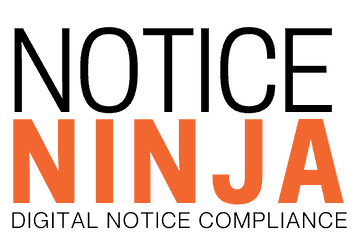Yes, NOTICENINJA is corporate tax notice compliance software that automates key workflows including notice assignments. The platform employs a rule-based system that can manage multiple level rules and ensure notices are directed to the appropriate stakeholder. As a result, you’ll never have to worry about notices being misdirected or slipping between the cracks.
.png)
What to Do When the IRS Says You Have a Balance Due?

22 September
Even for business leaders who receive many annual IRS notices, an IRS balance due notice is disconcerting. However, the key is not to panic.
The first crucial step is to carefully read the entirety of the letter, particularly taking note of the amount due, deadline, and notice number. Becoming acquainted with the contents of the notice better equips businesses to respond calmly and avoid any penalties.
Remember, there's a solution to every IRS notice. We're here to guide you on how to respond when the IRS says you owe money.
Understanding Your IRS Balance Due Notice
The first and most crucial step when confronted with an IRS balance due notice is to thoroughly read the letter. Pay close attention to key details:
- The amount owed
- The deadline for payment
- The notice number
- Any additional instructions provided
A comprehensive understanding of these elements equips your business to respond thoughtfully and navigate the situation with confidence. Remember, there is a solution to every IRS notice, and we are here to guide you through the process.
Compare the Balance Due to Past Payments
It's common to receive a balance due notice in error, especially if you've already paid your taxes in full. Delays in processing tax returns and payments, exacerbated by the COVID-19 pandemic, can lead to such discrepancies. If you believe the notice is inaccurate, locate the documentation proving your payment for the correct tax amount. Once you've verified your payment, do not submit another payment. Instead, dispute the notice promptly by providing evidence of your payment.
Don't make the mistake of failing to respond, and trusting the IRS will realize its error. Responding before the due date allows extra time for the IRS to respond, as once you've surpassed the due date, you lose the right to appeal the notice.
If the Notice is Correct – Pay Promptly or Contact a Tax Professional
Failure to respond to IRS notices can have serious consequences, including forfeiting your right to appeal. If the notice accurately reflects an outstanding tax debt, it's crucial to pay it promptly to avoid accruing additional penalties and interest charges. However, if paying the entire amount upfront is not feasible, you have several options:
- Contact a Tax Professional: Seek the assistance of a tax professional to help you arrange a suitable payment plan.
- Set Up an Installment Agreement: Explore the option of setting up an installment agreement to pay off the debt over time.
- Apply for a Short-Term Extension: Request a short-term extension to give you more time to pay.
- Offer a Compromise: Consider contacting the IRS to propose a compromise, especially if paying the full amount would cause financial hardship.
Each payment option has requirements and potential fees, but taking proactive steps to address your tax debt is essential. Even if you can't pay the entire balance, making partial payments can help manage the remaining debt.
How To Stay on Top of IRS Notices
To ensure that you stay on top of all IRS notices, whether received inadvertently or intentionally, consider leveraging the capabilities of NOTICENINJA. For over a decade, Notice Ninja, Inc. has led the notice compliance industry, offering software solutions for tax notifications, compliance, and automation. NOTICENINJA streamlines the notice input process and utilizes OCR scan-to-capture technology, saving your company valuable time and resources.
Learn more about how NOTICENINJA can assist you in maintaining compliance and effectively managing IRS notices. With the right tools and strategies, you can confidently navigate IRS communications and ensure your business's financial well-being.
